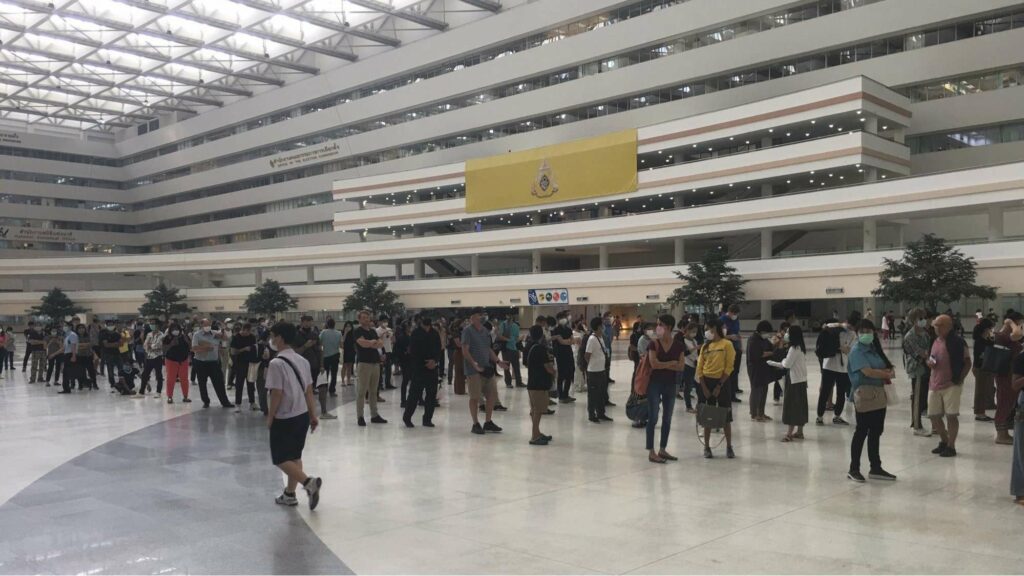Categories > Guides and Tips
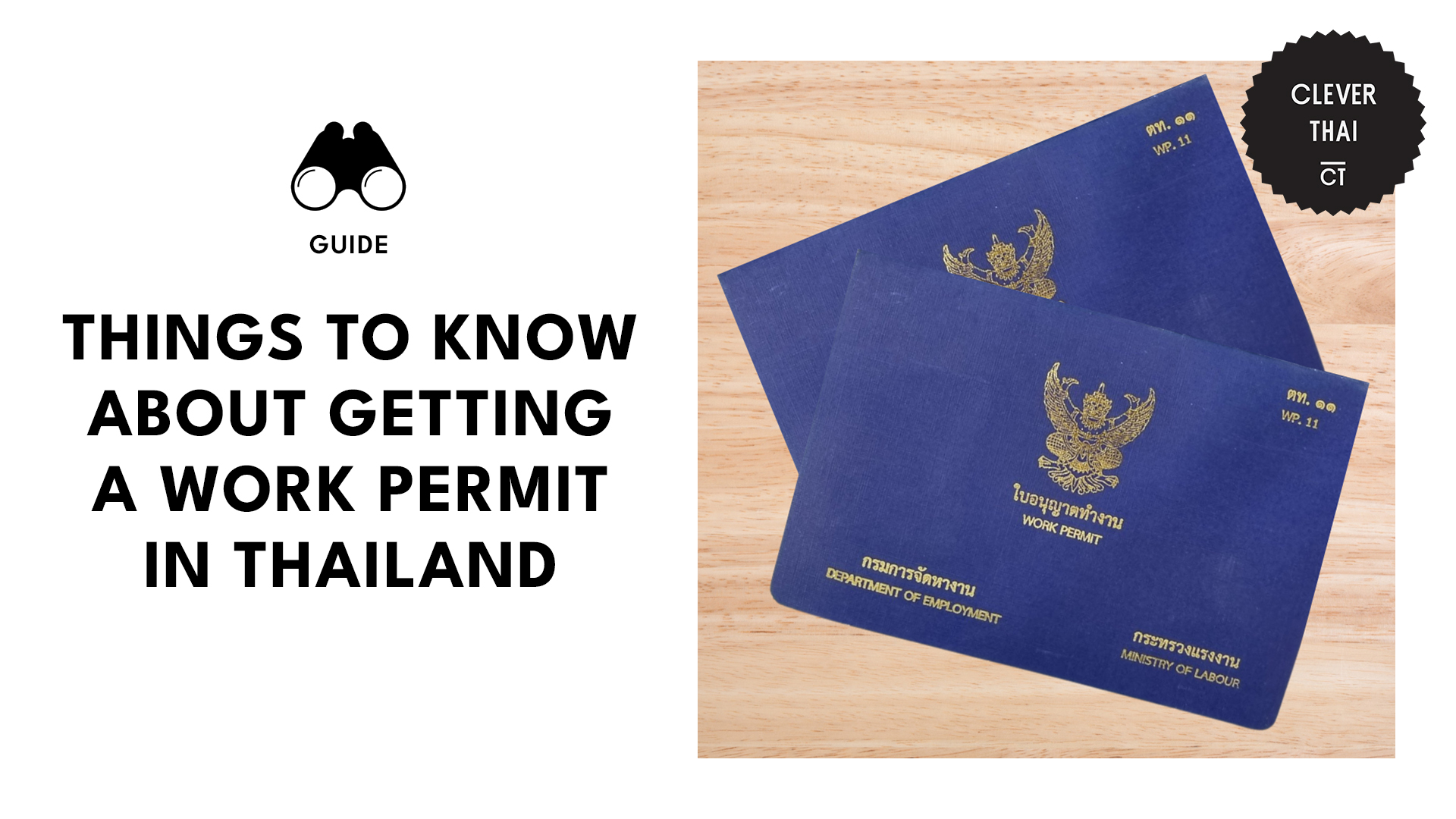
Things to Know about Getting a Work Permit in Thailand
Finding employment in Thailand as a foreigner is a great opportunity to maintain a livelihood while experiencing a new culture at the same time. If this describes your current situation, then congratulations are in order!
However, you should be aware that you need to put in some effort to arrange paperwork in preparation for your new journey in Thailand. Specifically, you must acquire a Thai work permit to be able to take an occupation legally within the country as a foreigner.
What is the Thai work permit?
The Thai work permit is a legal document that foreigners must acquire before taking up employment in Thailand. It details the nature of a foreigner’s employment, as well as other vital information such as their personal details and place of residence.
Before going further, you should be aware of the two most important documents related to working in Thailand as a foreigner – your work permit and your work visa.
It can be confusing at first since they’re named so similarly. We’ve been told by our friends that this confusion intimidated them before their careers in Thailand began, so we’re here to break down each document so we’re all on the same page.
Working in Thailand: Work Permit vs. Work Visa
To acquire a Thai work permit, a foreigner must first secure an appropriate non-immigrant visa. Both the visa and work permit are essential to prove the legitimacy of a one’s stay in Thailand, and lacking either of these can incur harsh penalties.
The importance of these documents might seem intimidating at first glance, but don’t worry! We’ve written this guide to help you understand exactly what they are and how to get them in preparation for your upcoming career in Thailand!
| Thai work permit | Non-immigrant work visa |
|---|---|
| Requires legal documents from yourself and your employer | |
| Apply for it at a Ministry of Labour office in Thailand | Apply for it at a Thai embassy/consulate in your home country |
| Allows holder to work in Thailand | Allows holder to enter Thailand |
What is a Thai work permit?
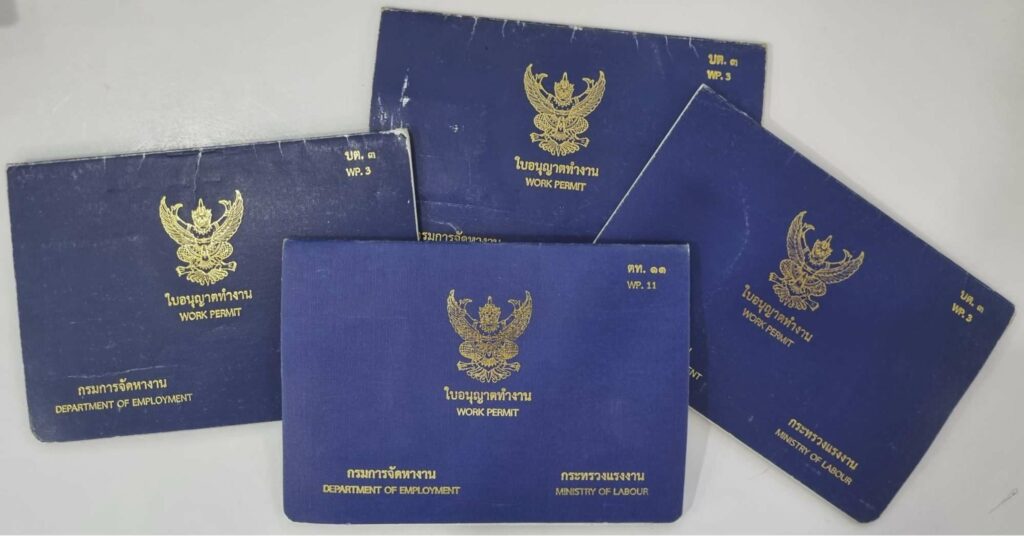
The Thai work permit is an official government document that allows foreigners to be legally employed in Thailand. It details the foreigner’s position in their employer’s company, as well as the description of their profession.
Without this, a foreigner’s employment is considered illegal, and authorities will hand out the appropriate penalties based on the severity of the violation.
It’s important to note that a work permit is only valid for the specified occupation under the corresponding employer as indicated on the document.
If, for example, the work permit holder is changing careers by leaving Company X to take a new position at Company Y, the work permit must be revised as soon as possible to reflect these changes.
In general, the requirements to apply for a work permit in Thailand are documents to prove the legitimacy of the foreigner’s employment. Aside from that, a crucial requirement in the work permit application is a non-immigration work visa.
What is a non-immigrant work visa?
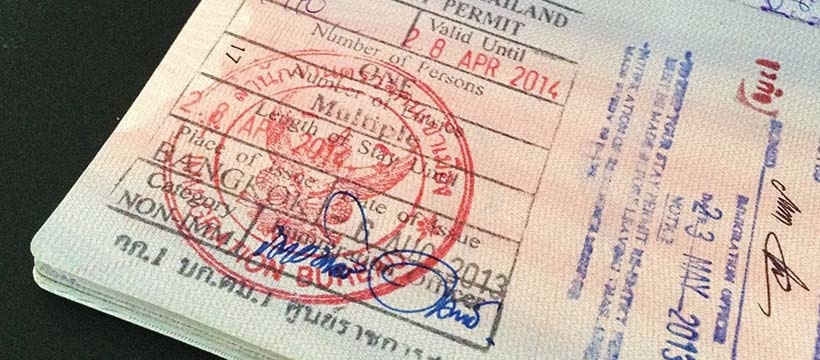
A non-immigrant work visa for Thailand allows the holder temporary entry into the country for the purpose of employment within its borders. Keep in mind that while this visa will allow entry to Thailand, it will not give permission to take employment.
This visa is commonly classified as a Category B visa. This visa is issued for foreigners who intend to work in Thailand. For the purposes of acquiring a Thai work permit, this is the most appropriate visa category.
It is important you apply for this kind of visa specifically, because tourist visas (Thailand tourist visas) aren’t eligible for use when applying for a work permit!
The work permit and the non-immigrant work visa may be named similarly, but these are not interchangeable documents. They serve different purposes, and you will need both.

How to Apply for a Thai Work Permit
Applying for a Thai work permit is crucial to starting a new career in Thailand. Some time and effort is required to get everything together, so read carefully to plan out everything well in advance.
Step 1: Secure a non-immigrant work visa
A non-immigrant work visa is crucial to be allowed to enter Thailand for the purpose of working, as well as securing the work permit to be allowed to take that job in the first place.
If you haven’t secured a visa yet, this is how to go about doing that.
Step 1.1: Note the non-immigrant work visa requirements
Make sure you have these documents on hand first before proceeding with the rest of the visa application process:
| Document | Notes |
|---|---|
| Your valid passport + photocopies | Remaining duration of validity must be more than six months, with two blank visa pages. One-year visa applications must have more than 18 months of validity. |
| Your accomplished Thailand Work Visa application form | You can download it from your respective Thai embassy/consulate’s website, or secure a form at their physical office. |
| Passport-size ID picture | Thai visa applications use these specifications: ⮕ 3.5cm x 4.5cm size ⮕ Must be taken on a white background ⮕ Neutral face expression ⮕ The whole face must be clearly seen. Headgear is only allowed for religious purposes, provided it does not obscure the face ⮕ Glasses are permitted as long as the frame does not obscure the eyes and face This ID picture must be not more than six months old. |
| Financial statement to prove capability to travel | Thai authorities consider someone capable of travel if they have the equivalent of 20,000 THB in their statement, and 40,000 THB for travelers in a family. |
| Police clearance certificate | |
| Ministry of Labour Letter of Approval | This is covered by your employer in Thailand. They must have an approval request granted at the Office of Foreign Workers Administration in the Department of Employment of the Thai Ministry of Labour. |
| Letter of acceptance into the educational institution | Relevant only for applicants entering a job as a school teacher. |
| Letter of Approval from relevant Thai education commission | |
| Academic institution’s registration and licenses | |
| Your CV |
If your documents are in a language that is not either English or Thai, you will need to have them translated before sending them in. Also, do your due diligence and double check with a Thai embassy for the most updated list of required documents!
Step 1.2: Contact a Thai embassy
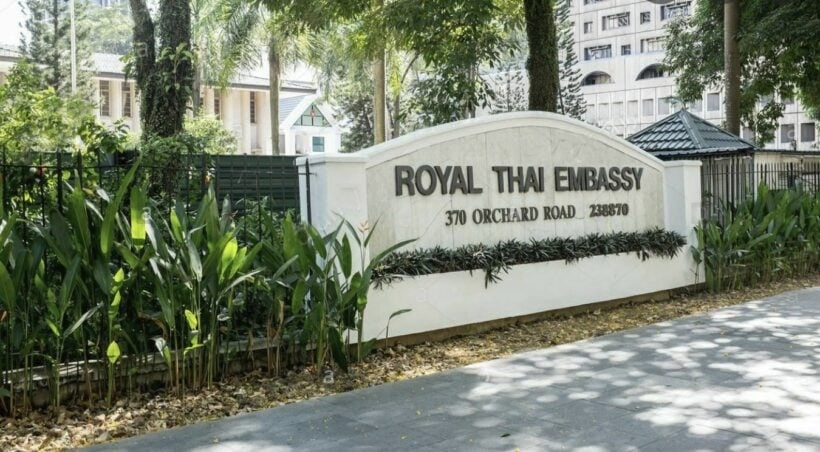
After gathering your documents, start your application process by getting in contact with your local Thai Embassy or Consulate. These offices handle all matters related to diplomatic affairs, so you’ll be coordinating with them to work through the process.
If you’re not sure where the closest diplomatic mission office is to where you live, a quick Google search can help you locate your options. While on the internet, you’ll also be likely to find details like their operating hours and their payment options.
Once you’ve chosen which embassy to contact, inquire with them on how to set up an appointment for your Category B visa application.
Try to be as transparent as possible when talking to an embassy officer or representative. The clearer and more detailed you can be with your reasons, the easier they can verify and grant you your visa. Being honest helps everyone!

Step 1.3: Submit your documents
Depending on your chosen embassy’s policies, you can submit your application details in person at their office, or through the post.
We highly recommend going through the in-person route. This way you can guarantee the security of your documents since they only change hands once, which is when you hand in the documents to the embassy officers.
If you do opt to mail in your documents instead, expect to be instructed to include a prepaid self-addressed envelope. This will be used to mail back the documents and visa to your address.
The fee for your Category B visa is around 2000 THB for a single entry visa, and around 5000 THB for a multiple entry visa. This price can vary from country to country, based on the exchange rate at the time.
Mode of payment for this fee can also vary, with some embassies only accepting cash while others take bank transfers.
Step 1.4: Wait for your visa to arrive
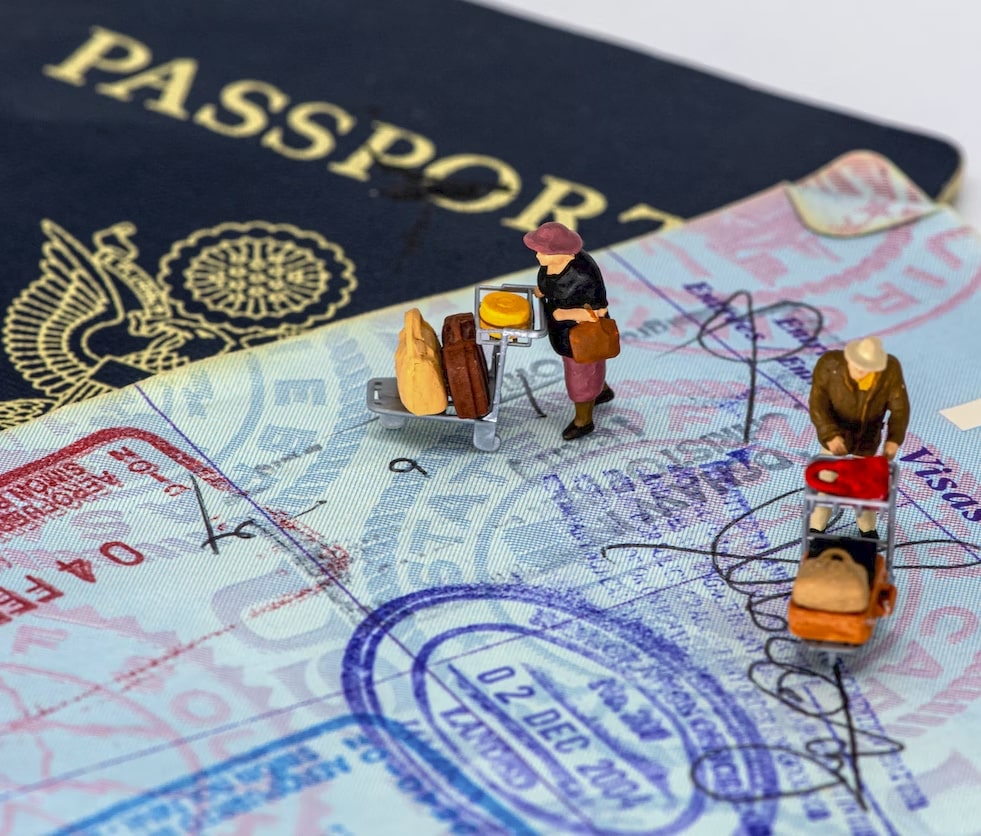
After you’ve submitted your documents and paid the relevant fees, all you need to do is wait for the processing to finish. This usually takes around three to ten business days.
After getting notified of the decision on your application – hopefully approved and granted! – you’ll need to go back to the embassy to collect your passport and visa. Applications through mail will be sent back to you using the envelope you provided.
Congratulations! You’ve successfully received your non-immigration work visa to kick off your career in Thailand.
At this point, be sure that you’ll be entering Thailand around the date specified on your visa. Failing to do so will void your visa, which makes all the effort you put into getting it for nothing.
Other than that, be sure to take good care of your visa! You’ll need it for basically every legal process regarding your stay and employment in Thailand going forward.
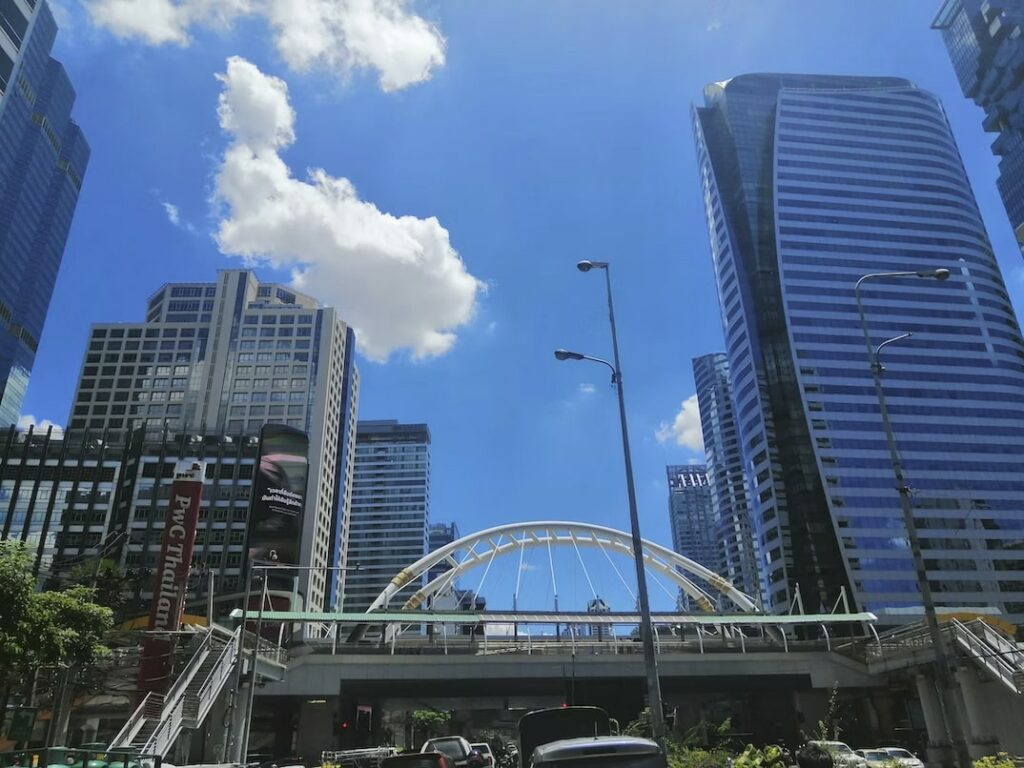
Step 2: Apply for a Thai Work Permit
Applying for the Thai Work Permit happens upon entering Thailand. At this point, this will require documents not only from you, but from your employer in the country as well.
Going through your work permit application will be one of your first orders of business upon arriving in Thailand. The following steps will help you prepare in advance for a smooth process.
Step 2.1: Note the Thai work permit requirements
Much like the non-immigrant work visa, the Thai work permit has an extensive list of requirements. Prepare these in advance and make sure to bring them with you when you enter Thailand:
| Document | Notes |
|---|---|
| Your valid passport + photocopies | |
| Your Category B visa | |
| ID pictures | Three copies, 5cm x 6cm dimensions. Must be taken within the last 6 months. |
| Proof of accommodation in Thailand | |
| Letter of Employment/Work Contract | |
| Your academic degrees/certificates | This includes your transcript of records. |
| Other relevant certificates/licenses | |
| A recent health certificate | Must have been issued within the last 30 days. |
| Your employer’s Company Certificate | Coordinate with your employer to compile these documents. These documents must be stamped with their company seal on each page and signed off by the Managing Directors. The Ministry of Labour may request for additional documents other than these, so keep an open line with your employer to be able to ask for them quickly. |
| A list of your employer’s company stakeholders | |
| Your employer’s VAT Certificate | |
| Your employer’s Withholding Tax |
Be aware that the Ministry of Labour requires that documents originating from your native country be legalized and translated into Thai before you submit them.
If you happen to be married to a Thai citizen, you must also include your Marriage Certificate with your other documents.

Step 2.2: Submit your documents to the Ministry of Labour
Applying for and receiving your Thai work permit needs to be your top priority when you land in Thailand and enter with your non-immigration work visa.
You need to have submitted your documents at the Ministry of Labour before your visa expires and before you start your job. If you don’t finish the process in time, you may get deported back to where you came from!
To begin the process, you need to visit a Ministry of Labour office to submit your documents. If you’re in Bangkok, for example, you can find their office here:
Ministry of Labour
Address: Mit Maitri Rd, Din Daeng, Bangkok 10400
Operating Hours: Mondays – Fridays, 8:30 AM – 4:30 PM
Website: https://lb.mol.go.th/en/
Outside of Bangkok, you will need to look up the closest provincial labor office to process your documents there.
Step 2.3: Paying for work permit fees
During the process, you will need to pay the required fees. This fee depends on the valid duration you can select during application:
| Valid for three months | 750 THB |
| Valid for between three to six months | 1500 THB |
| Valid for between six to twelve months | 3000 THB |
It will usually take the Ministry of Labour up to a week to process your work permit. When the decision is made and you are granted your work permit, you must return to the office to claim it and finish other required formalities at the office.
At this point, you can breathe easy – you’ve successfully received your work permit and can now legally take up your new job in Thailand!
| Pro Tip: Foreigners working in Thailand should always keep their work permit on hand as much as possible. Additionally, the foreigner should only be performing tasks as detailed by the job description listed on the work permit. If a foreigner working in Thailand is unable to produce their work permit upon a government official’s request, they can receive punishments such as fines worth thousands of THB. |
| How to Renew the Thai Work Permit How long your work permit is valid depends on the validity period you opted for during the application process. In other words, your work permit can be valid for a maximum of one year. Renewing your work permit follows the same procedure as first applying for it. You must gather your documents as well as your current work permit, and submit them to the Ministry of Labour for processing. The Ministry of Labour will extend your work permit for up to another year. As long as your work contract remains valid and in effect, you can continue to renew your work permit for as long as is needed. |
Thai Work Permit: Options for Freelancers

With the professional landscape continually changing, many people are choosing to work freelance to take on the gig economy. If you plan to do so in Thailand, you have some options on how to go about this.
Work with a relocation service provider
Working independently without a certified Thai employer can be a struggle. Getting into the country, not to mention securing a work permit, becomes a huge challenge, especially for freelancers.
This is where relocation service providers (moving to thailand) step in. These companies help clients overcome the paperwork associated with visas and permits needed to get into and work in Thailand as a freelancer.

This works by hiring freelancers that want to work with them. The service provider then assigns clients to the freelancer, and takes a cut from their earnings in return for handling legal affairs like taxes and social security.
This way, the freelancer is technically counted as an employee of a legal Thai company, while still doing freelance work they wanted to do in the first place. Working with a relocation service provider can be a mutually beneficial arrangement worth looking into.
Apply for a Thailand Elite Visa

The Thailand Elite Visa program is aimed at foreigners looking into staying in the country long-term (permanent residence thailand), and are willing to pay a premium to skip the paperwork normally required.
This program comes in two plans: the Easy Access plan and Superiority Extension plan.
| Easy Access Plan | Superiority Extension Plan |
|---|---|
| 600,000 THB | 1,000,000 THB |
| Five years | Twenty years |
| Holder is ineligible to apply for a Thai work permit | Holder can choose to apply for a Thai work permit under certain conditions |
| Comes with various privileges and discounts | |
Both plans come with an extensive package of privileges, but the main draw truly is the fact that availing of this plan means skipping the red tape usually associated with entering and staying in Thailand.
If you have the resources to opt into this as a freelancer, it takes off a huge burden off your mind since you won’t have to juggle much paperwork anymore. It’s a steep initial investment, but you may find the peace of mind worth it.
| IMPORTANT NOTE |
|---|
| Please be reminded that the Thailand Elite Visa still counts as a tourist visa. As a result, you won’t be able to apply for a work permit should you choose to transition away from freelancing and into corporate life. The exception to this, however, is the recently introduced Flexible Plus program. This allows you to apply for a work permit, provided that you opt for the Superiority Extension plan and are able to invest 1,000,000 USD into the country within a year of receiving your Elite visa. |
What to Do If You Lost Your Job in Thailand
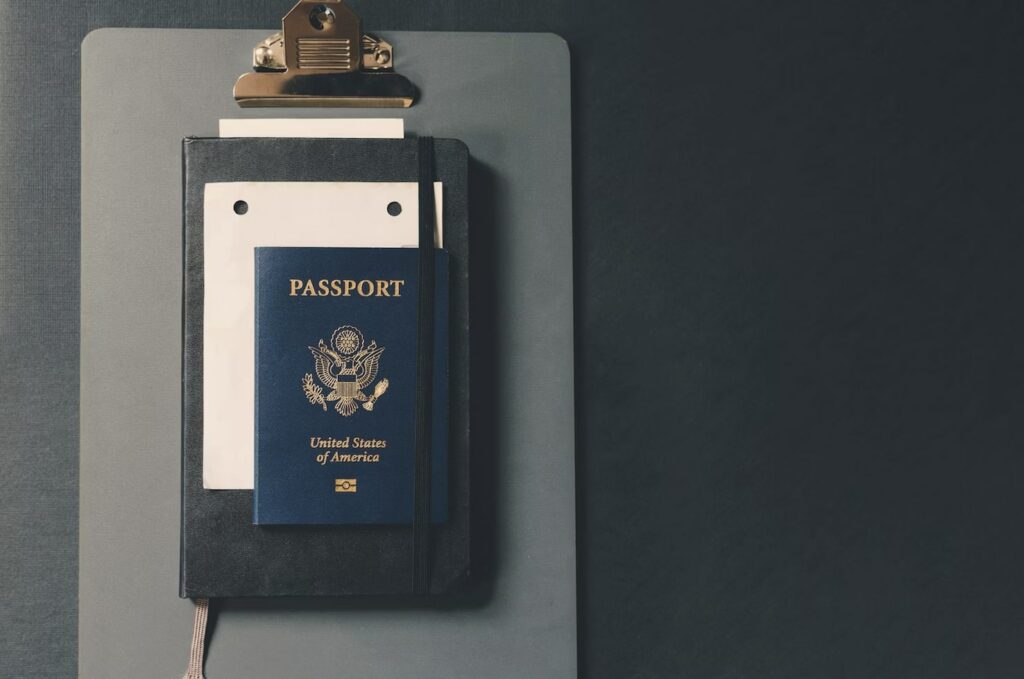
Once your contract with your employer in Thailand ends or is terminated, regardless of the circumstance, it’s time to exit the country. At this point, your work permit has become invalid, with your work visa soon to follow.
Realistically, all you can do at this point is to leave Thailand as soon as possible, or apply for an extension at Immigration.
Leave immediately to avoid serious repercussions
Once your employment in Thailand ends, your permission to stay in the country expires as well. You must take your documents to the appropriate offices to have them canceled.
For your work permit, bring it to the Ministry of Labour to have it canceled. Next is your work visa, which is dealt with at the Immigration Department. After this, you need to leave Thailand within the day.
| What are the penalties for not leaving Thailand immediately after termination of employment? Foreigners that loiter in the country after termination of their employment is punishable with fines worth thousands of THB, and denial of entry into Thailand in the future. This is a violation of labor law in Thailand, which authorities strictly enforce. Serious violations of illegally staying in Thailand can also lead to imprisonment in extreme cases. |
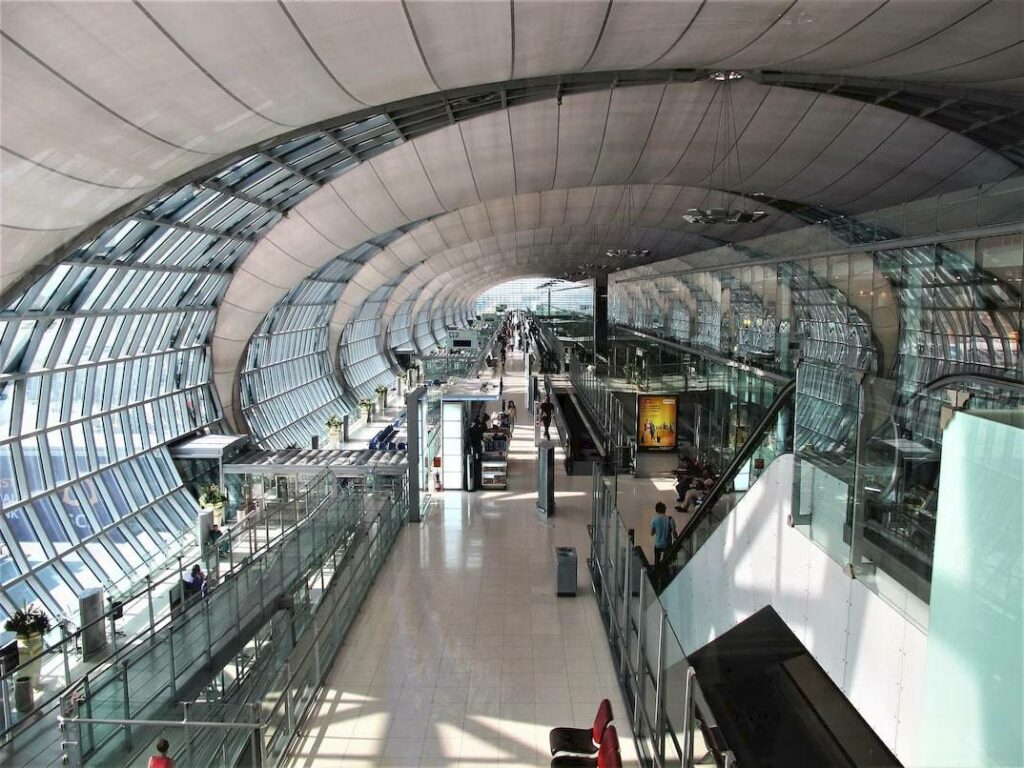
Apply for an extension at Immigration
Alternatively, while at Immigration, you can choose to apply for a seven-day extension on your visa. If you happen to have other options for what to do next in Thailand and just need time before you can do it, this is the way to go.
Still, keep in mind that this is just to buy yourself time to finish whatever you need to do. As a result, we want to remind you that if you foresee a career change incoming for you while working in Thailand, plan out your next steps well in advance.
For example, if you’re planning on shifting companies within Thailand, do your best to coordinate with your initial employer on how to revise your documents in anticipation of your new career.
If it’s one thing you need to keep in mind, you want to minimize the possibility of being in between careers in Thailand if you don’t plan on leaving the country. Properly planning around this will make sure you’re never in a messy situation.
Bangkok Immigration Office
Address:120 Soi Chaengwattana 7, Ratthaprasasanaphakdi Building B, Thung Song Hong, Lak Si, Bangkok 10210
Operating Hours: Weekdays, 8:30 AM to 4:30 PM. Lunch break 12 PM to 1 PM.
